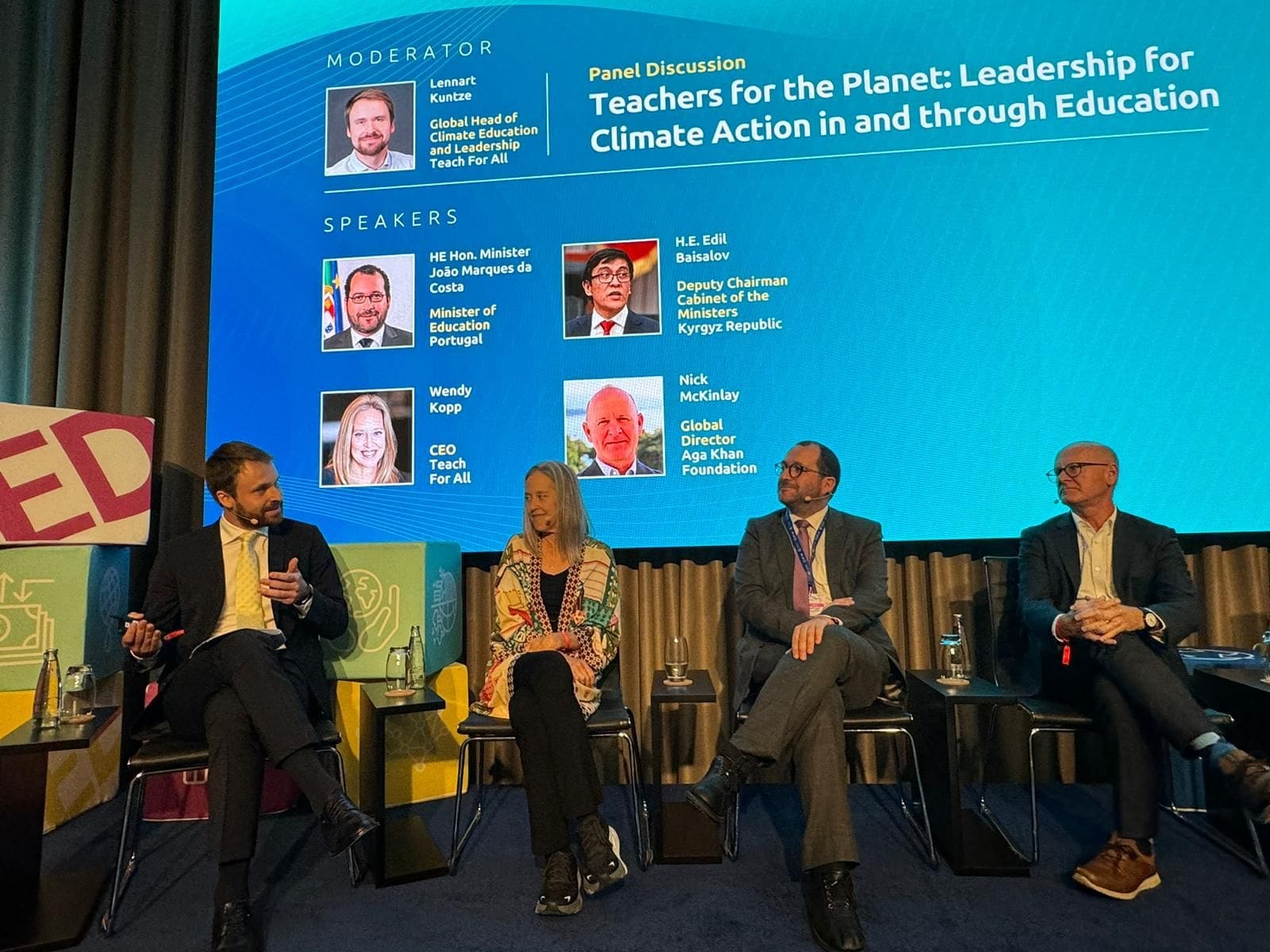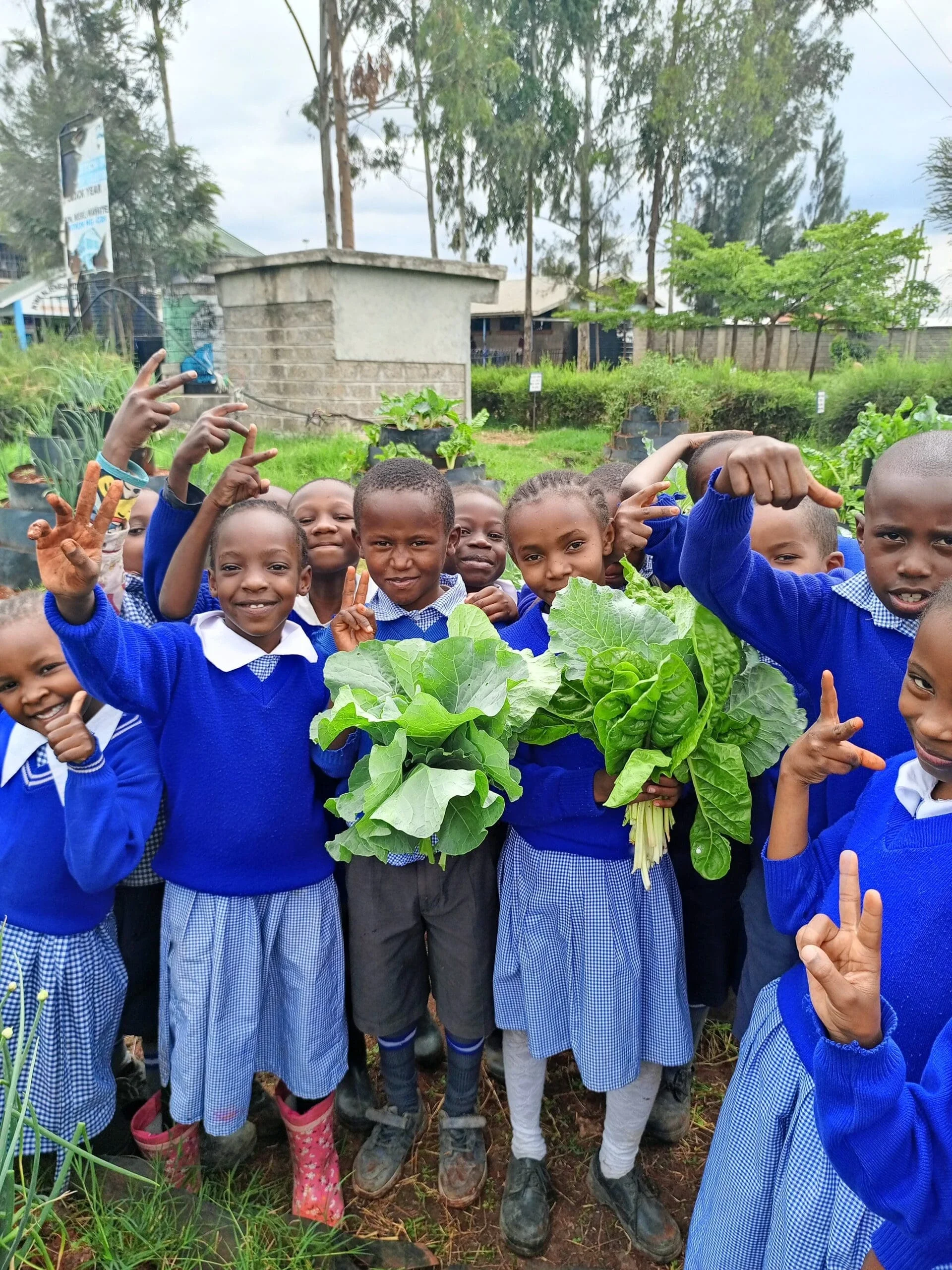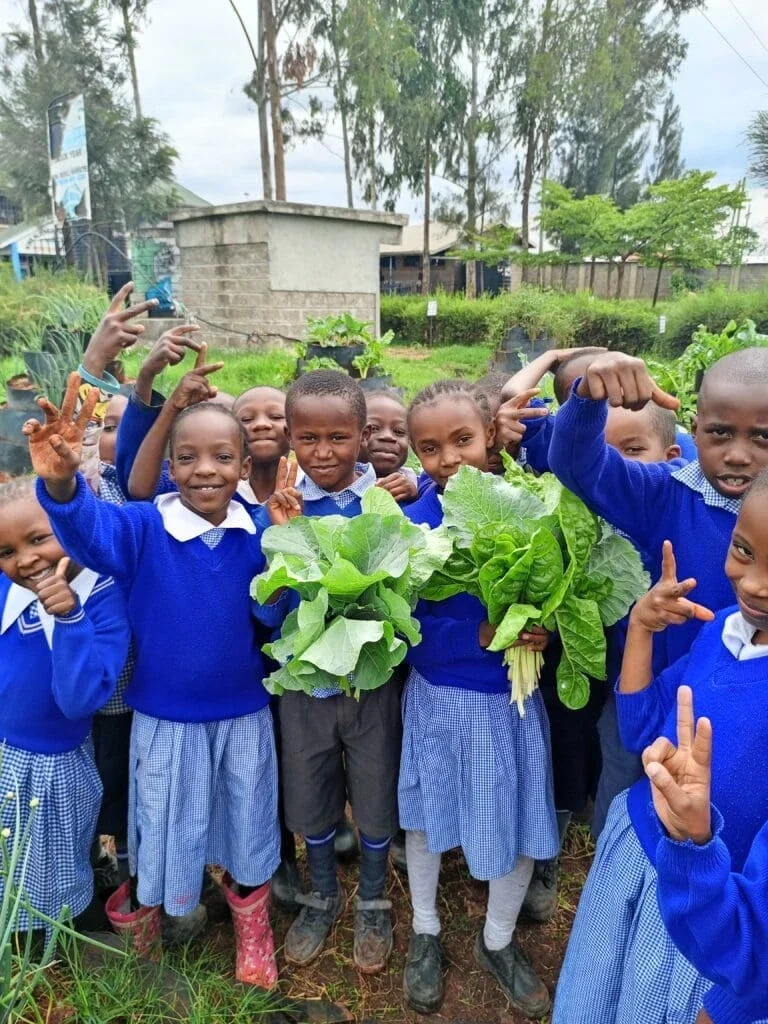As many parents, teachers, and school administrators can attest, the climate crisis requires nothing short of an overhaul of global education systems to empower students to create solutions and change policies.
Data regarding the impact of climate change on students’ mental health underlines the urgency of this mission. A recent study found that 71 percent of student respondents were “quite or very concerned” about climate change, while 68 percent were “quite or very concerned” about the impact on them personally.
So amid a warming earth, how do we prepare the next generation to help shape a better future for all?
An answer can be found in the transformative work underway to unite teachers globally around advancing quality climate education through a public portal and ongoing convenings.
“Everyone talks about including young people in our fight against climate change. Very little of that talk translates into action. This is why we’re so excited about this opportunity to reshape educational experiences that equip and motivate young people to be the change agents we need,” said Zia Khan, The Rockefeller Foundation’s Senior Vice President for Innovation.
This work was incubated at 17 Rooms, a partnership between the Brookings Institution and The Rockefeller Foundation to catalyze actions for the 17 Sustainable Development Goals. “17 Rooms supports leaders in shaping bold ideas and building coalitions to make progress on the world’s biggest challenges,” Khan said.
Working Toward Fundamentally Transformed Societies
In 2022, a 17 Rooms partnership between Teach For All and the Aga Khan Foundation led to the launch of the Teachers for the Planet program. In 2023, again at 17 Rooms, the group co-designed a mechanism to incorporate the voices of trailblazing teachers in the design of national climate education plans.
As a result of this work, during the first-ever Education Day at COP28, the group launched their online portal that features 100 climate solutions from some 60 countries, profiling both the innovations and the educators behind them. The group also hosted a think tank for climate education that included ministers, policymakers, and the teachers themselves.
The climate education gap is real. Out of 100 countries surveyed by UNESCO in 2021, only 53 national curricula referenced climate change or environmental sustainability. And educational initiatives receive a negligible share of climate action funding.
Teachers for the Planet aims to address these shortcomings. “Hundreds of teachers and their students are driving this change,” said Lennart Kuntze, Teach For All’s Global Head of Climate Education and Leadership. “We are creating a platform where they share their critical experiences and insights with policymakers so to help scale climate education across the world.”

Education Day at COP28. (Photo Courtesy of Teach for All)
Kuntze and his team at Teach For All have also established a Climate Education and Leadership Fund with support from The Rockefeller Foundation. Through this, about a dozen network members will produce climate change curriculum and teacher training materials and share those assets with the broader network for potential scaling.
In honor of Earth Day 2024, we are focusing our lens on the inspiring work being led by five groundbreaking teachers.
Please join us in reading these stories of teachers—and learn what is needed next.


Kenya: Third-Graders Improve Waste Management While Alleviating Hunger
Third-graders in Nairobi collected discarded plastic bottles, and then used them as planters and cultivated a hanging vegetable garden.